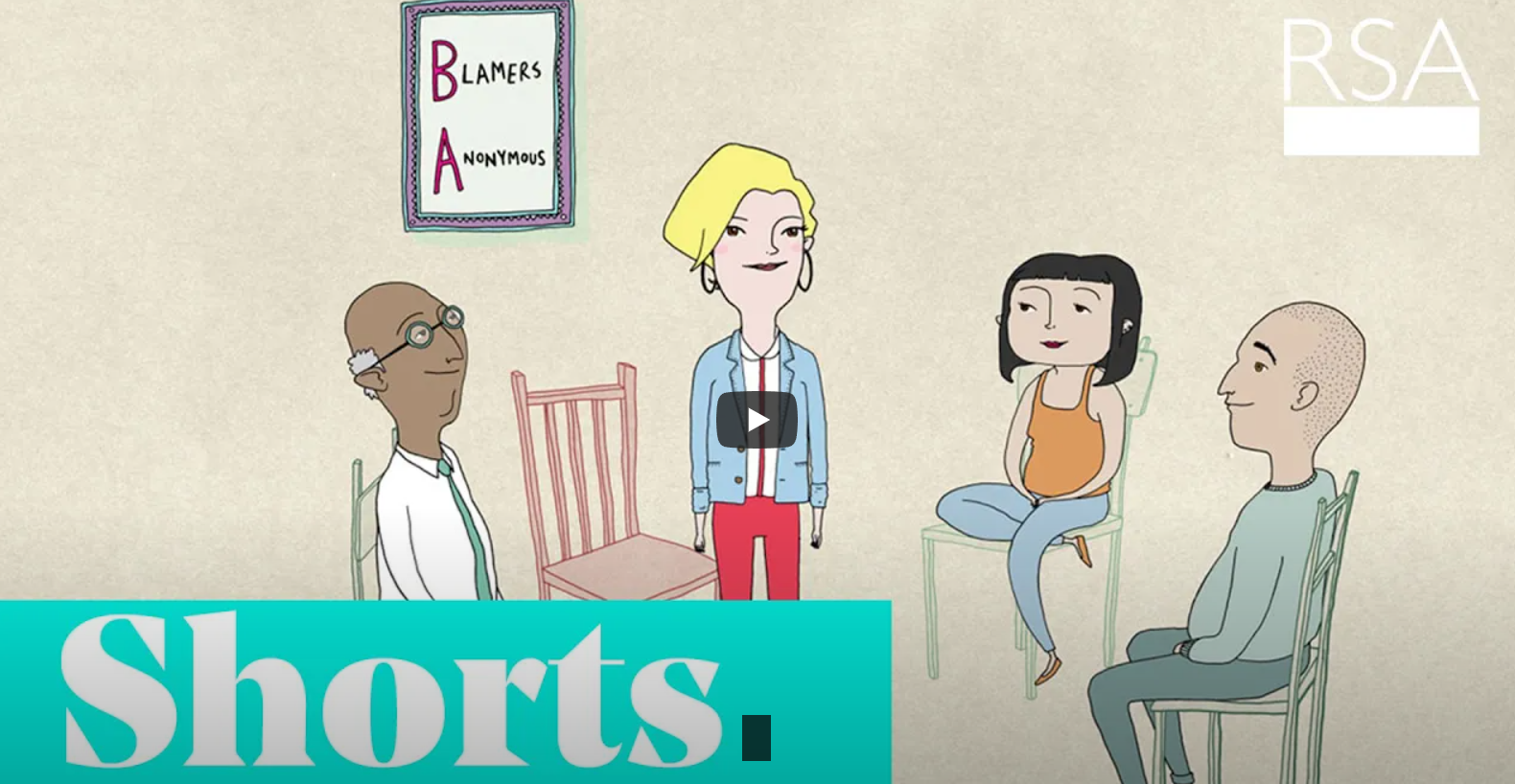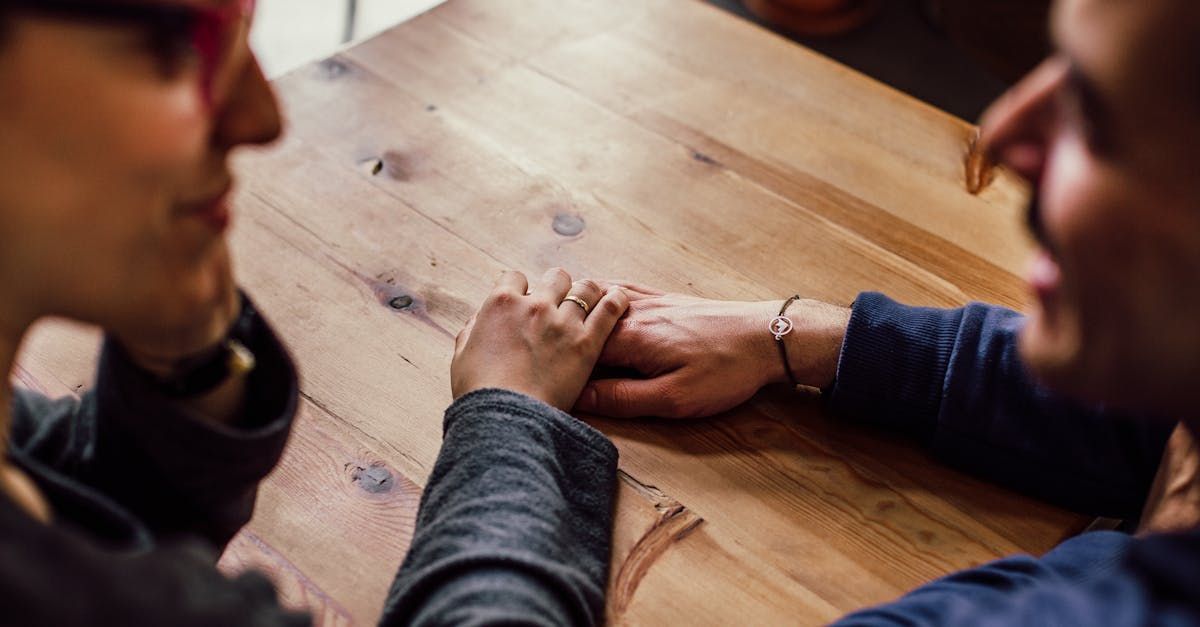How to Get out of the Disconnection Dance
Kathleen Maiman • June 8, 2016

If you want to get out of the disconnection dance, blame and withdrawal are two behaviours that won’t allow this to happen. Even though both of these coping strategies are somewhat effective in giving space and being self-protective, they both lead to distancing and can trigger the other partner making the cycle worse. Moving away from each other is not the solution. Being more exposed, vulnerable and open (ie taking risks) leads to connection.
What is difficult for partners in relationship is taking risks, being open and more vulnerable. Blaming and withdrawing are easier and self-protecting. We learned these in our early days in childhood. Most of us learned these behaviours as they served us on some level. To be invisible could avoid punishment or to blame, (ie point the fault towards a sibling) also avoided punishment or pain. Wired in to avoid pain, these strategies can have a more adverse effect in relationships. When using these avoidance patterns they don’t allow you to take responsibility for your feelings nor do they invite you to reach for your partner for closeness or connection.
To avoid pain, evolution has also wired in another reason to not risk reaching for another when there is “risk of rejection”. What if we did reach for our partner, risk and be open and vulnerable and we are rejected or abandoned. These underlying fears are the crucibles to keep the blaming and withdrawal behaviours alive in our primary and most intimate relationships. To risk and to be rejected is synonymous to “death”. Brain scans show us that rejection is registered and experienced in the brain as if we were physically hit by a 2’x4’. The pain registers the same.
Turning away or not being there for someone when they most need the comfort and closeness is also painful. For example, a woman discovers she is having a miscarriage and her partner doesn’t know what to do when he sees the blood. He freaks out when she calls him. Instead of going towards her, he leaves to calm his nerves and goes into task mode, ie calls the hospital and taxi. In her most vulnerable moment, he moves away from her, and she feels rejected. What happens next is: she makes a decision, “I will never allow myself to need you that much again” and she shuts down from her partner, pulling in to never risk exposing herself. For years this goes on. She is no longer vulnerable or open to her partner.
Ultimately, he experiences her distancing behaviour, feels her lack of warmth, comfort, also experiencing his own version of rejection/abandonment. Not ever revisiting this event in a heartfelt way, they co-exist in their marriage dancing between their defenses and lack of openness. She is nasty and nitpicky, using blame as a way to keep herself protected and distant and he does the same. They become the “Bickersons”, living a life of judging and blaming, undermining one another.
Love is Risky Business
To remove or lower the defenses of blame and withdrawal, one must be willing to feel ones’ own vulnerability, be open to sharing this vulnerability and take risks. Using vulnerable language versus blame/criticism invites a partner in…. “I feel sad when you don’t look at me”, I long for you to hold me after we make love so that I can feel connected”, “I get afraid when I don’t hear from you while you are on the business trip” Of course, there is a risk in being this open and vulnerable. What if my partner thinks I am too needy? What if he won’t come to me when I call? Will I hurt more than I do now? Love doesn’t come without intimacy and therefore the very thing we are avoiding: “intimate connection” leads to disconnection.
You cannot heal wounds that you can’t open
Everybody is afraid of intimacy. Intimacy means exposing yourself. Intimacy brings you close to another. Dropping all of your defenses makes intimacy possible. However, the fear is we drop all our defenses, who knows what the other it going to do with you. Thus we are hiding from others and ourselves. It feels safer to keep the defense because the other can take advantage of your weakness, your vulnerabilities. Intimacy is an essential need. Everybody longs for it and wants the other to be intimate versus taking the risk to become intimate first. However, to heal our wounds, they must be seen, felt and held. Exposing these long held hurts and vulnerabilities is the path to liberating oneself from the endless suffering and energy it takes to suppress our vulnerabilities. Being intimate is a scary and risky, yet a necessary part of having authentic human connection.
Register for our Newsletter and receive a Free Love Chat Package
This Package Includes
- The 5 Steps to a Better Relationship
- Ongoing Monthly Relationship Tips
- If you want more love in your life, our relationship Love Chat Package is an easy cost-free first step.

Like many of us, I grew up in a family where there weren’t a lot of boundaries or assertiveness in requests. Rigid controlling behaviours were there instead of healthy boundaries. Here are some tips that I have learned about relationships and setting these boundaries. People have better relationships when there are healthy boundaries. And making requests, gives the other party the opportunity to meet us in our needs. Read on to better understand the difference between a request, a boundary, and an ultimatum.

In the spectrum of romantic relationships, there are four levels. The first stage is a crush . In this stage, you feel warm inside while hanging out with a man or a woman who pays attention to you, looks sweetly at you, smiles at you or who is kind to you. You find that you like each other. This is a crush and it passes away with time. It doesn`t stay strong and there is no significant bond there. Adapted from Sri Krishnaji – Co-founder of Oneness and World Centre for Enlightenment. Author of Four Sacred Secrets: For Love and Prosperity

A couple trudged into my therapy office, slumped down in their chairs and glared at one another. The tensions were high and the emotions were charged. This couple in their 40s had yet another fight on the way to their appointment. This fight was a continuation of something that started last night, but the truth was they had variations of the same argument for the last five years. “I’ve asked you to be kinder, but you speak to me with such contempt and attack me,” he complained. “But you’re doing things that upset me,” she counter-claimed. “What am I supposed to do?” They were at impasse and falling into this unhealthy dynamic over and over by making three common mistakes made by couples. What are these mistakes? Could knowing them transform your relationship?

With the holiday season upon us, aliveness and energy is in the air. The season can also be fraught with frenzy and heightened emotions. It is not uncommon for couples to be overwhelmed or disconnected during the holidays, especially if one or both of the partners gets triggered by certain events. The added stress can create relationship strife and difficulties.

Blaming is a natural human tendency. When something bad happens, the first thing we want to know is, “whose fault is it?” Dr. Brené Brown considers why we blame others, how it sabotages our relationships, and why we desperately need to move beyond this toxic behavior. Watch her short on blaming below.

Under stress, we move into doing and saying things that are often unskilled and immature. These behaviours can cause harm to another and erode relationships over time. It is not that we are uncaring in those times; rather, the stress responses mean we have reached an unhealthy capacity or emotional limit.











